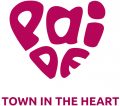On Wednesday 8th of December 2021, our project (“1309 – Circular Based Waste Management” – CBWM) collaborated with “Project 0572 – Reducing the Consumption of Single Use Plastics (SUP) in the Tourism Industry in Cyprus Greece and Malta” also known as SUPMed in holding a common round table discussion successfully. The round table discussion took place during Regional Funds Week with representatives from both projects, shared insights and experiences around waste management issues, awareness and education of adults and young people, and their importance in the context of “Applying circular economy through waste management and recycling”.
Participants had the opportunity to learn more about the two projects, best practices in waste management from both the public and private sector perspective as well as practices to raise awareness and provide incentives for youth and adults that can be applied to waste management. Furthermore, the discussion touched on how the two projects can further disseminate the outputs of the project through each other’s network and potential collaborations following the completion of both projects.
The two projects are in line with the circular economy action plan adopted by the European Commission in March 2020. The plan contains 54 actions that contribute to accelerating Europe’s transition to a circular economy with one of the policy areas being waste and recycling and contributing to a circular economy through extraction of as many high quality resources from waste as possible.
In addition, the European Green Deal aims to promote growth by transitioning to a modern, resource-efficient and competitive economy. Through the Waste Framework Directive, the EU as established a legal framework for the management and treatment of waste in the EU, where management of waste has been defined by order of preference, the “waste hierarchy”.
The average European citizen produces 5 tonnes of waste, however only 38% of waste is recycled in the EU with over 60% of household waste still going to the landfill in some EU countries. To help the EU’s transition to a circular economy and protect the environment and human health, EU waste policy has set clear objectives and targets to encourage recycling and limit landfilling so as waste management is improved. For the targets to be reached, it is imperative that the public and private sectors are involved as well as the general public.
The projects “Reducing the Consumption and Disposal of Single-use Plastics in the Tourism Industry in Cyprus, Greece and Malta” and “Circular Based Waste Management” are funded by Iceland, Liechtenstein and Norway through the EEA and Norway Grants Fund for Regional Cooperation.
To find out more about the SUPMed project (Reducing the Consumption of Single Use Plastics (SUP) in the Tourism Industry in Cyprus Greece and Malta) click here.
The Regional Funds week exhibition is still open until 20th December. To visit the stands of the two projects and find out more about other projects funded by EEA and Norway Grants Fund for Regional Cooperation you can go here.









